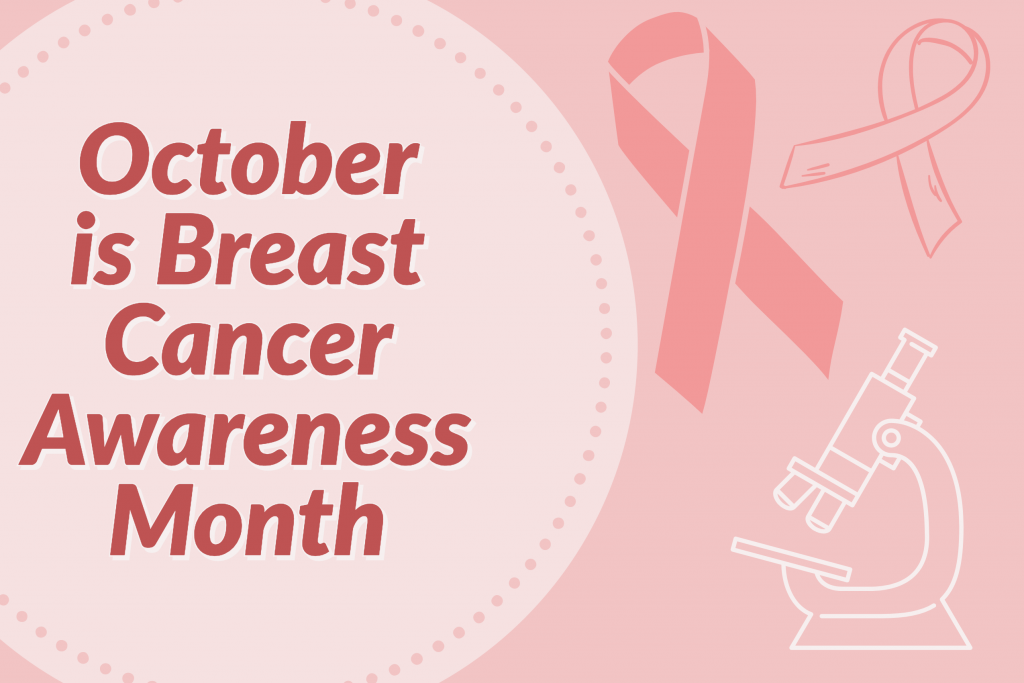Breast Cancer Awareness: October 2020

Every year in October, in countries around the world, people splash pink across clothes, banners, buildings, and just about anything to bring awareness to the annual breast cancer health campaign. Breast cancer is the second most common cancer among women in the United States. By understanding the mechanisms of breast cancer, researchers may be able to identify preventative strategies to improve patient outcomes, which is important since about 90% of cancer related deaths happen when cancer reaches the metastatic stage. Here is a collection of some of our student and faculty researchers studying breast cancer.
Inês Godet is interested in how hypoxia, a low or inadequate amount oxygen, in tumors affects breast cancer metastasis. Our tissues and organs have varying oxygen concentrations. For example, the air we breathe has 20% oxygen, but our liver has about 5%, making it mildly hypoxic. We even need hypoxic conditions for certain processes such as embryonic development. In primary tumors though, oxygen concentrations are less than 1%. This is because as tumor cells grow in number very rapidly, they deplete the oxygen in an environment with low access to functional blood vessels.
Most of the approximately 42,000 Americans who die from breast cancer each year perish because the disease has become metastatic, or has spread from its original site to the patient’s brain, bones, liver, or lungs. Using a $450,000 Career Catalyst Research Grant from the Susan G. Komen Foundation, SJ Claire Hur is developing a new system to personalize treatment plans for metastatic breast cancer patients.
Chris Yankaskas wondered if he could predict metastasis from a different angle by looking at the cancer cell’s phenotype, or observable cell characteristics and behaviors. Under the direction of Konstantinos Konstantopoulos, Yankaskas and a team of researchers created the Microfluidic Assay for Quantification of Cell Invasion, or MAqCI, a diagnostic tool and method for predicting breast cancer metastasis by looking at two key cell behaviors needed for metastasis instead of tumor genetics.
E-cadherin, a cell adhesion protein, allows cells to stick to each other, promoting metastasis in the most common type of breast cancer. Results suggest that breast cancer cells need adhesive connections to survive and eventually spread and kill patients. “Our future research aims to understand how to target the survival signals related to E-cadherin and prevent metastases from forming, thereby saving patients’ lives,” Ewald says.
Latest Posts
-
 Cellular building blocks may enable new understanding of the body’s “machinery”
December 19, 2025
Cellular building blocks may enable new understanding of the body’s “machinery”
December 19, 2025
-
 Biomedical Engineer Jamie Spangler Receives President’s Frontier Award
December 15, 2025
Biomedical Engineer Jamie Spangler Receives President’s Frontier Award
December 15, 2025
-
 Johns Hopkins Postdoc Named in Forbes `30 Under 30′ List
December 8, 2025
Johns Hopkins Postdoc Named in Forbes `30 Under 30′ List
December 8, 2025


